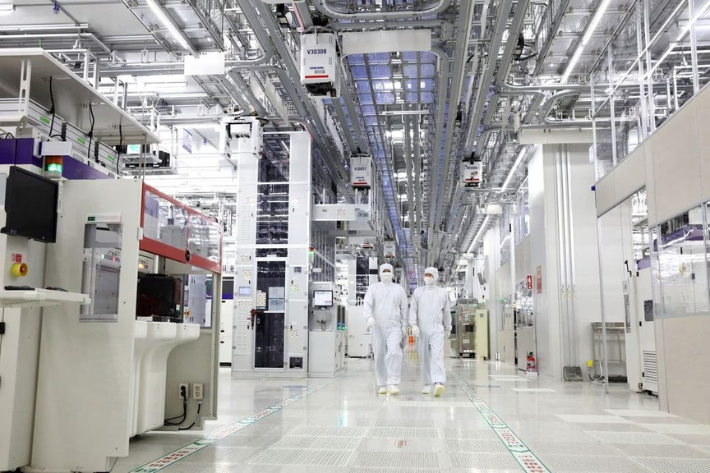An unreleased indictment filed by South Korean prosecutors earlier this month has detailed how a former Samsung executive conspired to steal secrets worth millions from his former employer for a now scrapped Foxconn chip fab in China.
Prosecutors say 65-year-old Choi Jinseog, once hailed as a star in South Korea’s chip industry, tapped Samsung’s supplier network to steal information ranging from factory layouts to cleanroom management.
The theft caused more than $200 million in damages to Samsung, prosecutors have said, based on the company’s estimated expenses towards developing the stolen data.
Also on AF: US ‘to Extend’ China Chip Curb Waivers for South Korea, Taiwan
Choi worked at Samsung for 17 years, where he developed DRAM memory chips and worked on wafer processing technology.
He won internal awards for advancing the company’s DRAM technology, before leaving in 2001.
Choi subsequently worked at rival SK Hynix for more than eight years, serving as chief technology officer of its manufacturing and research divisions and helping turn around the loss making chipmaker.
Copy-cat chip factory
In August 2018, Choi’s Singapore-based consultancy Jin Semiconductor won a contract with Taiwan’s Foxconn to help set up a new chip factory in China, potentially in Xian.
Within months, Choi poached “a large number” of employees from Samsung and its affiliates and illegally obtained secret information related to building a chip factory from two contractors, prosecutors allege.
Jin Semiconductor illegally used confidential information involving semiconductor cleanroom management obtained from Cho Young-sik who worked at one of the contractors, Samoo Architects & Engineers, the indictment alleges.
Clean rooms are manufacturing facilities where the enclosed environment is engineered to remove dust and other particles that can damage highly sensitive chips. Samoo had participated in the 2012 construction of Samsung’s chip plant in Xian, China.
Prosecutors allege Choi’s company also illegally obtained blueprints of Samsung’s China plant from Chung Chan-yup, an employee at HanmiGlobal, which supervised its construction and floor layouts involving the chip manufacturing process. They have yet to establish how the information on floor layout was obtained, according to the indictment.
Samsung treats the types of materials Choi obtained as “strictly confidential” and safeguards them through multiple layers of protections, allowing access only to those who have authorisation within the firm and at its third-party partners, the indictment says.
‘Factory layout available on Google’
Choi, who has been detained in jail since late May, denied all the charges through his lawyer, Kim Pilsung.
“What prosecutors allege was stolen has nothing to do with how to design or make chips. For instance, there are public international engineering standards to make cleanrooms and that’s not something only Samsung has,” Kim said.
“A factory layout? You can take a snapshot from Google Maps and experts would know what is inside which building,” Kim said, showing a satellite snapshot of Samsung’s plant in Xian, China.
The plant was never built after Foxconn pulled out, according to Choi’s lawyer and a person with direct knowledge of the case.
In a statement, Foxconn said that while it was “aware of speculation around the legal case in South Korea”, the company doesn’t comment on ongoing investigations.
“We abide by laws and regulations governing jurisdictions we operate in,” Foxconn said.
The indictment does not accuse Foxconn of wrongdoing.
The person with direct knowledge of the case said prosecutors found Foxconn had agreed to provide 8 trillion won ($6 billion) to build the factory. Foxconn also paid several million dollars to Choi’s company every month until it pulled out of the contract for reasons the indictment did not disclose.
Jin Semiconductor’s financial statement in 2018 said it entered into an arrangement with “a major customer” for the provision of qualified manpower in the next five years. The customer paid an advance of $17,994,217 to the company, according to the statement.
South Korea’s chip war
According to the indictment, the new Foxconn plant had planned capacity of 100,000 wafers per month using 20-nanometre DRAM memory chip technology.
While years behind Samsung’s latest 12- and 14-nanometre technology, 20-nanometre DRAM is still considered a “national core technology” by South Korea.
The South Korean government prohibits such technologies from being transferred overseas unless through legally approved licensing or partnership.
Lee Jong-hwan, a chip engineering professor at Sangmyung University, said information to make optimal conditions for cleanrooms and factory layout was critical to achieving high yield rates for chips, which would have helped China’s domestic chipmaking capabilities.
Lee noted that some data obtained by Choi might turn out not to be sensitive, “But now that China is keen to catch up with South Korean companies… any data related to 10-nanometre, 20-nanometre technology would have been helpful.”
Choi’s lawyer said his client may be a scapegoat in South Korea’s campaign to support and expand its chip sector, with the country caught in a chip rivalry between China and the United States.
South Korean President Yoon Suk Yeol this month declared chip industry competition an “all-out war”.
“This might be setting an example for the current administration’s agenda, such as technology leaks to China,” Pilsung, Choi’s lawyer said.
Choi is charged along with five other former and current Jin Semiconductor employees and a Samsung contractor employee. Trial is set to begin on July 12, court records show.
- Reuters, with additional editing by Vishakha Saxena
Also read:
Banned Nvidia Chips Available in China’s Underground Markets
OpenAI Chief Urges South Korea to Supply Chips for AI Boom
China Says it Will Strengthen Chip Ties With South Korea
South Korea Asks US to Review China Curbs in Chips Act Funding
Samsung to Pump $230 Billion Into ‘World’s Largest Chip Base’
US Risks ‘Enormous Damage’ With China Chip War: Nvidia CEO
US-China Rivalry May Spur Decoupling of Chip Sector – BBC
























